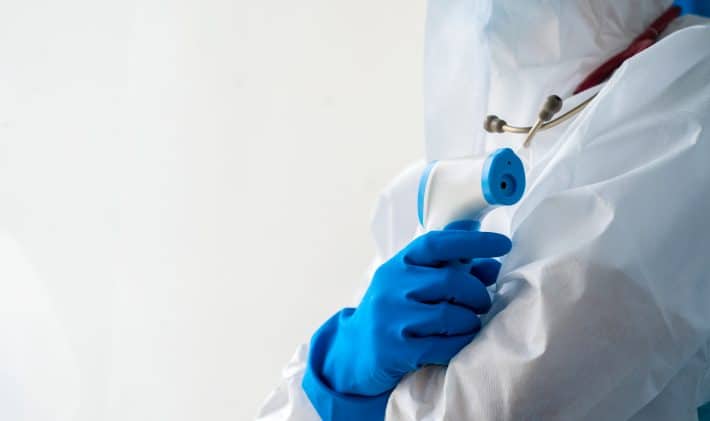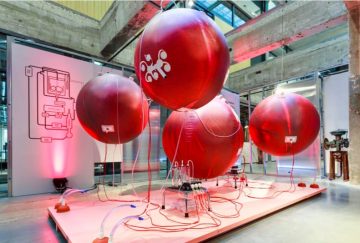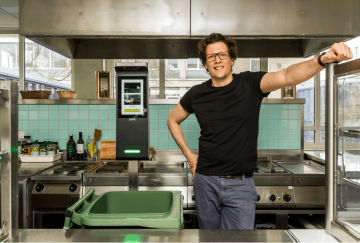CORDIAL-S develops a handheld device for rapid SARS-CoV-2 detection
Amidst the ongoing COVID-19 pandemic, medical experts, researchers and entrepreneurs around the globe unite in a search for innovative solutions to reverse the impact of the Corona virus. Among these, Sabine Szunerits, Professor in Chemistry at the University of Lille, is focusing her efforts on the development of a novel diagnostic device that has the potential to substantially increase the efficiency at which COVID-19 infections are detected, a crucial aspect in limiting viral spread.

Time is of the essence, especially when it comes to bringing COVID-19 solutions to the market.
The CORDIAL-S project received a 1 year €2.2 million award from the H2020-SC1-PHE, which supports R&D performing Universities and enterprises in rapid collaborative development of solutions to combat COVID-19. Winning this highly competitive grant is a testimony to the excellent partnerships formed for the CORDIAL-S project, which includes 7 partners from 4 different countries. Catalyze played a vital role during the process assisting the largely academic consortium in their commercial plans and managing the tight deadlines that needed to be met in order to be eligible.
Testing plays a vital role in containing the spread of COVID-19, as identification of infected individuals helps prevent further person-to-person transmission. Led by Professor Szunerits and ULille, the CORDIAL-S project aims to deliver unrestrained availability of a fast, efficient, accurate, and cost-effective point-of-care testing (POCT) device. The handheld C-POCT-S device is a novel solution that can address this pressing medical need. C-POCT-S uses surface plasmon resonance (SPR) to sense for the presence or absence of the SARS-CoV-2 virus, providing a rapid test result, in just 30 minutes.
How it all started.
The arrival of COVID-19 to Europe sparked the idea of using biochemical sensing to detect COVID-19.
“We had the idea of a COVID sensing device from the end of March onwards” Szunerits says. An initial grant submitted to the University of Lille resulted in the first €40.000 to make initial developments. “We tried to develop a fast point of care testing device based on an optical surface plasma resonance. The device is only 1 kilogram and will be used in emergency rooms once it is finished.” These developments bridged the gap to a starting point for the H2020 project.
Time is of the essence.
When bringing a device to the market to tackle the ongoing COVID-19 pandemic, every second counts. This was even more true for writing the CORDIAL-S project, as there were not even three weeks left to the deadline of the call when the decision to commit to the grant application was made. Szunerits: “David Devos, from the University Hospital of Lille suggested to work with Catalyze. He said, ‘To win the grant, you need an expert that knows how to put the science in the right format.’
“Catalyze was willing to take on the job in a very limited amount of time.”
Not everyone was on the same page
Most often, Universities tend to develop innovations that are in a relatively early stage. Because the COVID-19 sensing device needed to be on the market within 12 months of the start of the project, the technology readiness level of the product was relatively high. This made the University hesitant to pursue the grant, especially in such a short timeline. “They said politely that it might be a waste of time to apply.” Szunerits says.
Winning the project
Despite having the odds against them, the consortium won the grant in November 2020 and officially started on December 1st. Szunerits: “I am very confident that the science will come along well. Next steps are IP and Business. The academic environment does not help much in understanding the business perspective, so it was very helpful to get suggestions from Catalyze on how to write these complex things. We believe with the industrial partners we have a great resource in the execution.”
One size doesn’t fit all
Looking back on the collaboration with Catalyze, Sabine remarks that she enjoys the collaboration. Szunerits explains: “When I am writing a project, I know what pieces of information I want to tell, but it is very challenging to know exactly where to put which information in the proposal. I like to write the projects for myself and have reviewers reshuffle the text. Catalyze did a very good job in discussing how to get the information in the right framework and present it through nice visuals.”
Sabine concludes on a positive note:
“I am really happy with the work that Catalyze did for us. I don’t think we would have won without their help and I would definitely take them on again for writing the next project together.”
Catalyze was thrilled to partner with Sabine for her exciting and important project proposal, which will lead to vital advancement in COVID-19 related point-of-care capabilities. Catalyze is proud to support innovations that are furthering the mission of overcoming the ongoing COVID-19 pandemic.



